Post
A catch
Save a catch to start your fishing logbook. You will be able to to share it with the community if yo want!
A fishing trip
Post an ad to go fishing with other fishermen
Save a catch to start your fishing logbook. You will be able to to share it with the community if yo want!
Post an ad to go fishing with other fishermen
Share a thought, a question with the community
My favorite cities
×Join our 17 fishermen in Ozone-Park in Queens. The fishing forecast is currently 4.6. The most caught fishes here are the crevalle jack, the blacktip shark, black bream fish and the african pompano. Come try the most famous fishing techniques like the bass trolling, fishing with traps, surf fishing or trolling for bonito.
Our fishing forecast of Ozone Park indicates the best time to go fishing in this city.
The Crevalle Jack
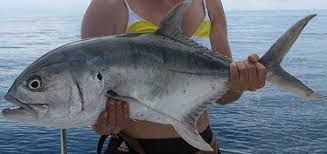
The Crevalle Jack belongs to the Carangidae family. The maximum height is about 115 cm long for a weight of 12 kg, but most adult individuals are about 70 cm long for a weight of about 3 kg. It can live up to 17 years. It breeds from March to September. It can be fished all year round. The body is elongated and fairly flattened and, like all carangidae, the pectoral fins are shaped like a sickle. Two thorns exist in front of the anal fins. The small scales are silvered laterally, but the dorsal part is blue-green mixed with golden reflections. The anal fin is bright yellow. It has a very specific black spot on the edge of the lid.
The Crevalle Jack is a famous fish you can catch in Ozone Park.The Blacktip Shark
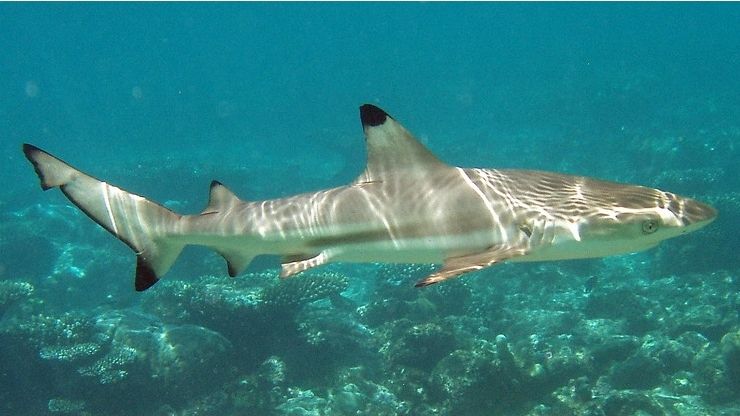
The Blacktip shark belongs to the Carcharhinidae family. If the maximum height is between 2.50 and 2.80 m, the average is more usually around 1.50 m, for a weight of 120 kg. The life expectancy of the blacktip shark is estimated at 12 years. Mating takes place from spring to early summer. It can be fished all year round. The blacktip shark has a relatively slender body with a long, conical snout. Its back and sides are ash grey; a light horizontal lateral stripe marks this area of the white belly quite slightly and a broad white line is often visible, belonging to the belly, coming from the caudal peduncle and stopping under the dorsal fin. The long nose is flattened dorso-ventrally and appears slightly rounded when viewed from below. The eyes are forward, relatively small. The mouth is wide. The nostrils are thin and you can't see the spiracles. The upper and lower teeth are quite similar, with a broad base and an almost straight point with finely crenellated edges. The pectoral fins are sickle-shaped. The first pointed dorsal fin with a pyramidal profile is inserted just behind the pectoral fins. The second dorsal fin is much smaller, facing the anal fin, of the same size. Just in front of the anal fin is a pair of small pelvic fins. Finally, the caudal fin is heterocercal with a fairly large upper lobe. All fins, except the anal, are bordered with a dark color on the trailing edge or apex, varying in intensity from one individual to another. The lower edge of the pectoral
The Blacktip Shark is a famous fish you can catch in Ozone Park.Black Bream Fish
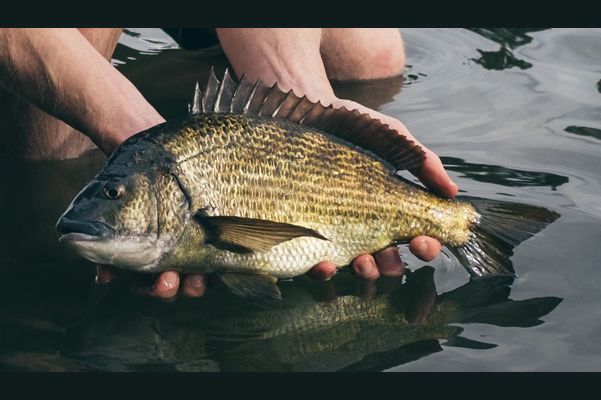
The Black breamfish, also known as Acanthopagrus butcheri, is a Sparidae. In general, its average size is 15 to 35 cm and its weight is 500 g to 2.5 kg. However, some individuals can reach up to 60 cm and 4 kg. The black bream has a lifespan of 27 years. Its spawning period is between August and January. It can have up to 300,000 spawn each season. It is not hard to catch and offer a little resistance. The Black bream has a high body and relatively compressed laterally, with symmetrically curved dorsal and ventral fins. The mouth is of moderate size compared to the body and has six incisors in the front of the lower and upper jaws. The body is covered with large scales that can be cycloid or slightly ctenoid. The head is essentially flake-free, except for the lids. A flake sheath covers the soft ray bases of the dorsal, anal and caudal fins. The Black Bream is silvery, from golden brown or bronze to grey-green on the back as well as on the sides with sometimes greenish reflections, depending on its habitat. The belly is white. The fins are all dark, with black borders. The caudal fin is often dark olive-brown.
Black Bream Fish is a famous fish you can catch in Ozone Park.The African Pompano
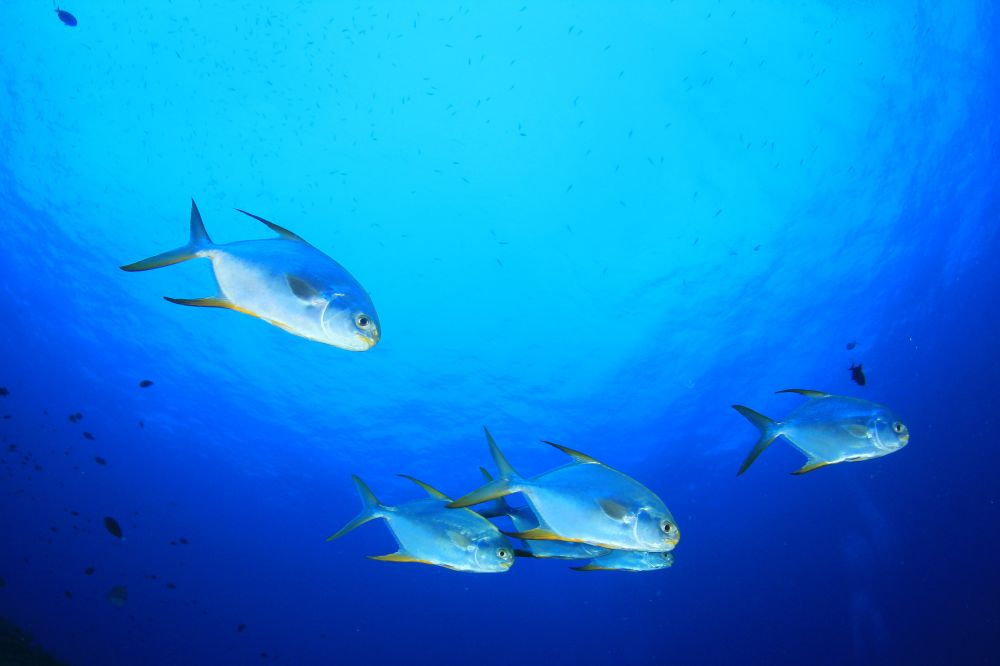
The African Pompano belongs to the Carangidae family. The maximum size can reach up to 1.50 m, but the average size is one meter. It breeds in spring and autumn. It can be fished during the hot seasons. Like many carangidae, it is a deep and laterally compressed fish, which have the deepest point of the body between the origin of the dorsal and anal fins and the head and tail tapering on either side. The dorsal and ventral profiles are also convex, the main characteristic of the adult being its more curved head compared to the more angular head profile of African Pompano. The species has 4 to 7 spines visible in the first dorsal fin, followed by a single spine and 18 to 20 soft rays in the second dorsal fin. The anal fin has two spines followed by 15 or 16 soft rays, while the pectoral fin is long and curved. The skin of the fish appears flake-free, but has tiny, embedded scales scattered over the body. The lateral line has a strong and moderately long dorsal arch, with a posterior section of 12 to 30 scales. Juvenile with filamentous rays at the anal and dorsal fins. Juveniles are characterized by their "spinning" appearance, characterized by filaments dragging anal and dorsal fins that retract with age. During maturation, the species also becomes more elongated and more similar to other types of jacks. The body is a silvery blue metallic to blue-green above, being the darkest on the head and upper shoulders, while the underside is more silvery. Juveniles have 5 chevron-sha
The African Pompano is a famous fish you can catch in Ozone Park.The Schoolmaster fish
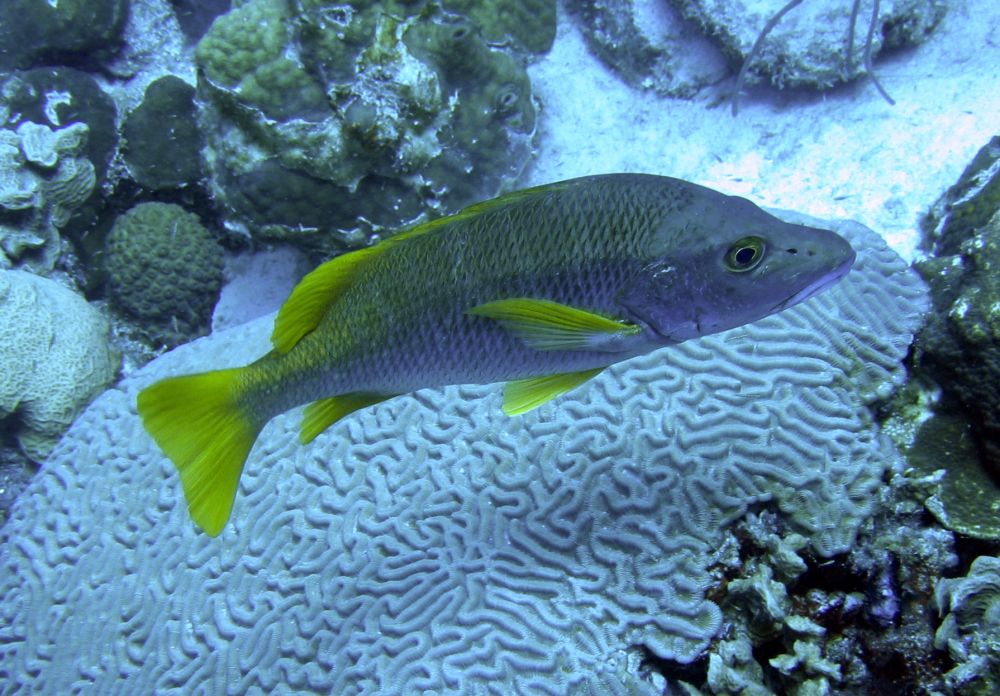
The Schoolmaster fish belongs to the Lutjanidae fish. They reach a maximum of 61 cm long and 3.6 kg in weight, but are normally in the 30 cm to 35 cm range. It has a lifespan of 19 years. Its spawning and fishing season depends on the location. Schoolmaster have a robust, slightly compressed body, moderately deep, with a pointed head. The greatest depth is more than a third of its standard length. The head is broad, as long as the depth of the body; the profile is straight from the muzzle to the nape of the neck, then regularly arched to the tail. Their triangular snout is long and pointed, with a large mouth. The notch and the pre-seal button are small. One of the upper pairs of canines is significantly larger than the anterior teeth of the lower jaw, visible when the mouth is closed. Vomer and the palatins both have teeth. There are no teeth on ectopterygoids. In addition to an anchor-shaped dental patch on the vomer with a median posterior extension, 5 to 7 gills at the first plantar arch of the upper limb and 11 to 15 lower limbs, totalling 17 to 22. The color is olive grey to brownish on the back and upper sides, with a yellow to reddish tinge around the head. The lower sides and belly are lighter; no dark lateral spots under the front of the soft dorsal fin. There are 8 narrow, pale vertical bars on the side of the body that may be pale or absent in large adults. A solid or broken blue line extends over the head under the eyes and may disappear with growth. From the up
The Schoolmaster fish is a famous fish you can catch in Ozone Park.Our fishing forecast of Ozone Park indicates the best time to go fishing in this city.
Our fishing forecast of Ozone Park indicates the best time to go fishing in this city.
Our fishing forecast of Ozone Park indicates the best time to go fishing in this city.
